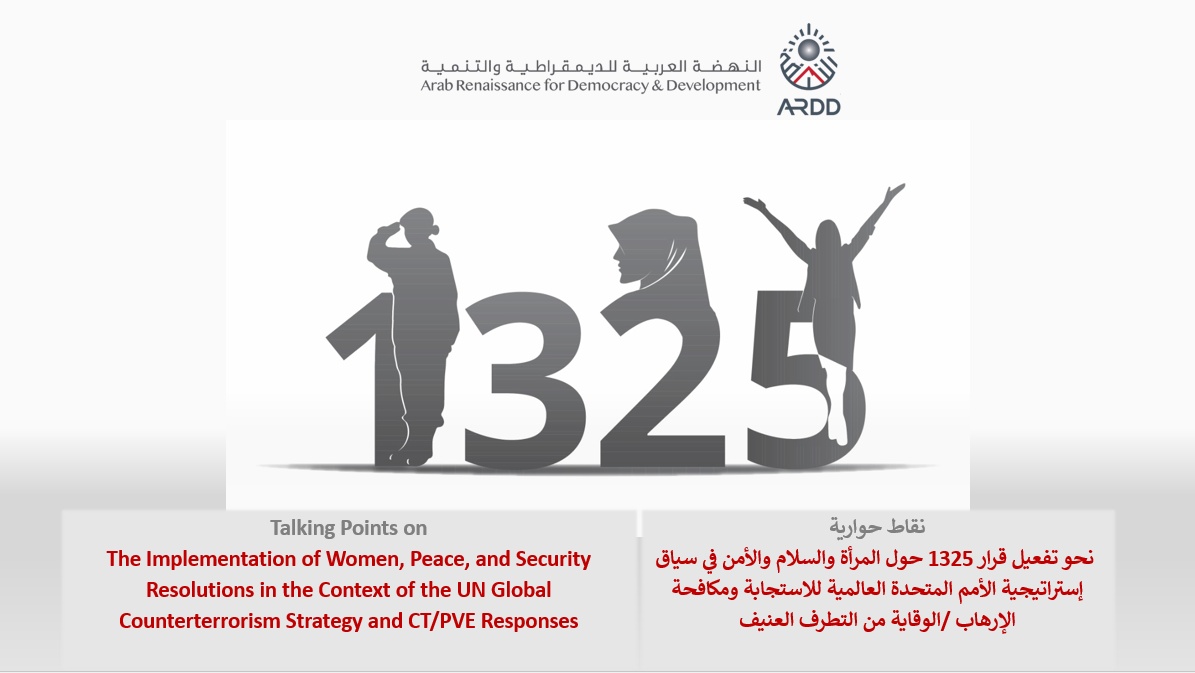In 2006, the United Nations (UN) released its Global Counter-Terrorism Strategy (UN GCTS), which addresses the conditions conducive to the spread of terrorism, provides measures to build states’ capacities to prevent and combat terrorism and presents methods to ensure respect for human rights and the rule of law as the fundamental basis for the fight against terrorism (United Nations General Assembly Resolution 60/288, 2006). During the sixth biennial review of the strategy, which was undertaken in 2018, the strategy advocated for the increased inclusion of women and civil society organizations in policymaking and programming in this area. This commitment upholds the importance of Women, Peace, and Security (WPS), whose agenda is best demonstrated in the UN Resolution 1325 on Women, Peace, and Security of 2000, which “reaffirms the important role of women in the prevention and resolution of conflicts, peace negotiations, peacebuilding, peacekeeping, humanitarian response and in post-conflict reconstruction and stresses the importance of their equal participation and full involvement in all efforts for the maintenance and promotion of peace and security” (UN Women, 2000).
ARDD stresses the critical role that women play in preventing violent extremism. Often, women are seen as either victim of extremist ideologies or as contributors to them. However, it should be noted that when women are active agents in extremist thinking, more often than not it is because they are victims too — of an environment that politically, socially, and economically marginalizes them. At ARDD, we have focused on strengthening the role in preventing violent extremism in Jordan, particularly, and in the region. There is increasing recognition among civil society actors that women’s participation in preventing violent extremism should not be part of counter-terrorism strategies but part of the civilian peace agenda. Women are already on the frontline of countering extremist violence in Jordan in their capacities as mothers, police officers, and more.
While the WPS agenda and the UN GCTS are complementary in nature — the UN GCTS presents approaches to preventing violent extremism (PVE) as well as terrorism and the WPS agenda emphasizes the role that women have in this approach – the UN GCTS advocates for women’s participation in the military sector. This method falls under the “nation-building” approach, a top-down model that supplements a military or securitized counter-terrorism strategy (UN Women, 2015).
ARDD, like other civil society organizations, has reservations about this approach, as it has been shown in Iraq and Afghanistan, for example, that these strategies do not effectively take local context into consideration and have not been successful. Specifically, it is ARDD’s experience that it is very difficult to engage civil society organizations in PVE work whose measures are delineated in the UN GCTS. Ironically, while there is no clear distinction between the PVE agenda and WPS, it has been easier for civil society organizations to engage in WPS work, as participation remains at the grassroots level and does not involve participation in peace building and political conflict management.


